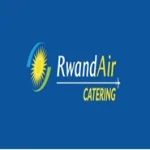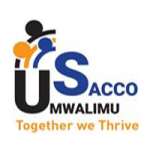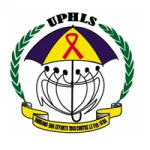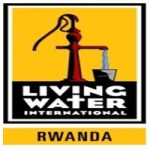DUH aranira AM ajyambere y’ Icyaro is a local non-profit organization based in Kigali, the capital of Rwanda, Kicukiro District, Niboyi Sector.
Website: http://www.duhamic.org.rw
TENDER NOTICE
TENDER TITLE: To procure and distribute Agricultural Inputs for 2025 agriculture season to Support Farmers in Nyabicwamba Marshland
CLIENT: DUHAMIC-ADRI
The deadline for submission of bids: Thursday September 19, 2024
Bid Submission Time: 11:00AM
Bid Opening Time: 11:30AM
Place: DUHAMIC-ADRI Headquarters (Kicukiro, Niboye)
Context and background for this tender
1.1 Brief description of DUHAMIC-ADRI
DUHAMIC-ADRI is a Non-Governmental Organization legally granted by Rwandan law legally recognized by the Ministerial Order No. 943 of July 12, 1985 as a Local Non-Government Organization and its statutes were amended and accepted by the Ministerial Order No. 025/11 of 21th March 2005 and it has fulfilled all requirements for compliance with the new law number 04/2012 of 17/02/2012 governing the organization and the functioning of national non-governmental organization.
As local Non-Governmental Organization, DUHAMIC-ADRI has General Meeting Assembly, Board of Directors, Audit Committee, Conflict resolution committee and Executive Secretariat. The Executive Secretariat is formed by the personnel of organization in different administrative and technical units.
DUHAMIC-ADRI operates in Rwanda at countrywide scale with the vision to have “a rural world responsible for its self-socio-economic development” and the mission of supporting integrated development through the initiatives of the rural population in their struggle for self-development.
1.2 Brief description of Climate-Smart Agriculture Project
Since July 2024, DUHAMIC-ADRI has partnered with the United Nations High Commissioner for Refugees (UNHCR) through a signed Partnership Framework Agreement (PFA) to implement Phase II of the Climate-Smart Agriculture and Market Development for Enhancing Livelihoods of Refugees and their Host Communities in Rwanda.
The Climate-Smart Agriculture initiative aims to improve food security and self-reliance for 2,036 beneficiaries (732 refugee and 1,304 host community households, including 1,091 women and 945 men). By 2026, this project will benefit over 7,851 family members through climate-smart agricultural practices and a market development approach.
Specifically, the partnership focuses on contributing to achieving the following outcomes of the project: Outcome 1: Increased Agricultural Productivity and Outcome 2: Increased Household Income.
Introduction
The Nyabicwamba marshland, a key agricultural zone, plays a vital role in the food security and economic stability of the region. The marshland is predominantly used for maize cultivation, which is a staple food and a significant source of income for both refugee and host community farmers. However, the productivity of the marshland has been declining due to the lack of adequate agricultural inputs and the growing need for sustainable farming practices.
In response to these challenges, this concept note proposes the procurement of essential agricultural inputs for the upcoming 2025A season. The inputs include organic manure, maize seeds, DAP (Diammonium Phosphate), UREA, and pesticides. These inputs are crucial for enhancing soil fertility, increasing crop yields, and ensuring the overall sustainability of farming activities in the marshland.
Objective
- To improve soil fertility and enhance maize production in the Nyabicwamba marshland.
- To provide farmers with high-quality agricultural inputs that will increase crop yields and income levels.
- To promote sustainable farming practices through the use of organic manure and appropriate application of chemical fertilizers and pesticides.
- To strengthen the resilience of local farmers against climate change and other environmental challenges.
- Justification of this tender: The procurement of agricultural inputs such as compost, UREA, DAP, improved maize seeds, and pesticides for Nyabicwamba farmers’ cooperative members contribute to the follows:
- Improving Soil Fertility: The use of compost, UREA, and DAP will help enhance soil fertility, ensuring that essential nutrients are available for crop growth. This is crucial for maintaining the productivity of the marshland soils, which may have been depleted over time due to continuous cultivation.
- Increasing Crop Yields: Providing improved maize seeds that are high-yielding and pest-resistant, along with the appropriate fertilizers and pesticides, will help increase crop yields. This will directly contribute to better food security and income for the cooperative members.
- Enhancing Sustainable Agricultural Practices: The use of compost and balanced fertilizers promotes sustainable farming practices by improving soil structure, increasing organic matter, and reducing the reliance on chemical fertilizers alone. This approach can help mitigate environmental degradation and promote long-term productivity of the marshland.
- Supporting Farmers’ Livelihoods: By supplying these inputs, the initiative supports the livelihoods of the Nyabicwamba farmers by reducing their input costs and helping them achieve better harvests. This can lead to increased income, better living standards, and enhanced economic stability for the cooperative members.
- Addressing Pest and Disease Challenges: Pesticides are essential for protecting crops from pests and diseases that could otherwise devastate yields. Supplying these inputs ensures that farmers are equipped to manage and control pest outbreaks effectively, safeguarding their crops and investments.
- Encouraging Adoption of Best Practices: Providing access to high-quality inputs can encourage farmers to adopt best agricultural practices, leading to improved productivity and sustainability. This can also facilitate the transfer of knowledge and skills related to modern farming techniques among cooperative members.
By supporting these areas, the procurement of agricultural inputs will help improve overall agricultural productivity, ensure food security, and enhance the socio-economic status of the farmers in the Nyabicwamba marshland.
Quantity of inputs to be procured
The volume of inputs to be procured is 230,000kg of organic manure; 2,300kg of DAP; 2,300kgof UREA; 690kg of improved maize seed.
The table below summarizes the quantity needed based on the land coverage area to be covered:
|
S/N |
Item |
Specification |
Quantity Kg |
|
1 |
Organic manure |
Compost |
230,000 |
|
2 |
DAP |
DAP (18-46-0) |
2,300 |
|
3 |
UREA |
UREA (46-0-0) |
2,300 |
|
4 |
Seeds |
WH403 |
690 |
Venue for delivery of different agricultural inputs
The venue for delivery is at Nyabicwamba marshland located in Nyabicwamba Cell of Gitsibo sector of Gatsibo district.
Technical specification for compost to be supplied
The organic manure or compost shall be of good quality, ready to be used and fulfilling the following technical and quality standards:
- The compost must be friable (not feeling sticky) when clenched between fingers and crumbles when released; soil-like.
- The compost must feel coarsely pound roasted coffee when squeezed in palms;
- The compost must look dark-brown in colour;
- The compost should be not smelling;
- The compost should not contain any non-degradable materials such as plastics; metals, clothes ….
- The compost has to be mature and meet the following laboratory analysis standards:
- Potassium content ≥6%
- Nitrogen content ≥ 2%
- Organic matter content ≥20%
- Nitrogen to carbon Ratio between 10-35%;
- Phosphorus content ≥ 0.4%
- Moisture content between 25-45%.
- PH: between 6-8
Notice: Before the delivery, DUHAMIC-ADRI and other project stakeholders will have right to verify and test the compliance with above technical and quality standards through physical inspection.
Before delivery, Supplies shall be inspected upon delivery to verify if they conform to the requirements and poor-quality items shall be rejected and the supplier shall be requested to replace them.
The following inspections shall be performed:
- Inspection at the place where the compost will be prepared before supply;
- Inspection during delivery time.
All these inspections shall be aiming to check the conformity with technical specifications provided in the bidding document.
These inspections shall be conducted by the Project staff at the cost of the supplier.
Requirements for Bidders/ Applicants
Due to the short time for the supplier to avail all the desired quantity and the period for farmers to cultivate in due time, the below are requirements for interested bidders:
- Proof of having transportation means justified by yellow cards of five (5) vehicles trucks in name of Bidder or shareholder; with approved valid Goods transport authorization issued by RURA.
- The quantity of compost availed and precise the location (name of compost producer, site, Village, Cell, Sector and District).
- The recent (signed not more than 3 months) notarized contract signed between the bidder and compost producer (for the bidders who do not possess their own compost) will be presented in bids.
- The bidder will present in the bids, result certificate (of not 3 months) of the compost sample analyzed and approved by the laboratory of RAB or NAEB. This certificate must fulfill all characteristics stated in this bidding document.
Procurement procedures
Referring to the procurement policy of DUHAMIC-ADRI, this tender will be done through public tendering process and qualified companies (input supplies) and cooperatives will be invited to bid.
The following terms and conditions shall be observed during tendering process:
- An application letter addressed to the DUHAMIC-ADRI Executive Secretary
- company/cooperative registration certificate;
- Provide at least three certificates of good completion for similar tender issued by recognized and well reputable institutions operating in Rwanda;
- Provide valid tax clearance issued by Rwanda Revenue Authority (RRA);
- Provide valid RSSB clearance;
- The bidder must provide the quotations including transport cost and other related charges including applicable taxes.
- The bidder should hold a certificate issued by MINAGRI/RAB and or other reputable institution operating in Rwanda certifying the possession of supply authorization
- A proof of using electronic generated bill (EBM)
- The bidder must have sufficient store of selected agriculture input to be suppliedto ensure its ability to supply a huge volume in limited time; shall be ready for supply upon the issue of the purchase order
Timeline
The successful bidder is expected to commence immediately upon contract signing. The delivery period is expected to take a period not more than 1 week up on signing of the contract. (7 calendar days)
Submission of proposals and bid evaluations
Submission of documents for bid
- The deadline for submission of bids for supply of agriculture input at Nyabicwamba Marshland is 19thSeptember, 2024 at DUHAMIC-ADRI head office located in Kicukiro District, Niboyi, Sector at 11:00 AM
- Bidders are required to submit their offers in sealed envelope.
- After registration of the bid sender at DUHAMIC-ADRI reception office, the sender will be directed to a bid box for bid submission.
Opening of Proposals
- The proposals will be opened in a public session on 19thSeptember 2024 at DUHAMIC-ADRI OFFICE 11:30 AM.
Evaluation and selection of bid winner
The bidder with technical proposal which comply to the maximum requirements as informed in this tender notice and with a financial proposal evaluated to be within the limit of available budget planned for this tender will be selected and notified as a successful bidder.
Before notification of the successful bidder, DUHAMIC-ADRI will reserve right of negotiation with potential bidders in ascending order to bear the proposed financial offer within the limit of available budget planned for this tender. The negotiation will be looking only for financial proposal and not for technical proposals.
Before granting the awarding the tender to the successful bidder, DUHAMIC-ADRI will carry out a site visit to verify and confirm if the bidder complies with all requirements as detailed in the notice
Conclusion
Supporting the farmers of Nyabicwamba marshland with agricultural inputs is crucial for enhancing their productivity, ensuring food security, and promoting sustainable agricultural practices. Providing inputs such as organic manure, high-quality seeds, fertilizers like DAP and UREA, and pesticides will enable these farmers to improve crop yields, particularly in staple crops like maize. These inputs will also help in restoring soil fertility, managing pests and diseases, and optimizing water usage, which are critical factors for the marshland’s agricultural sustainability.
Done at Kigali, September 5,2024
MUHIGIRWA Benjamin
Executive Secretary





